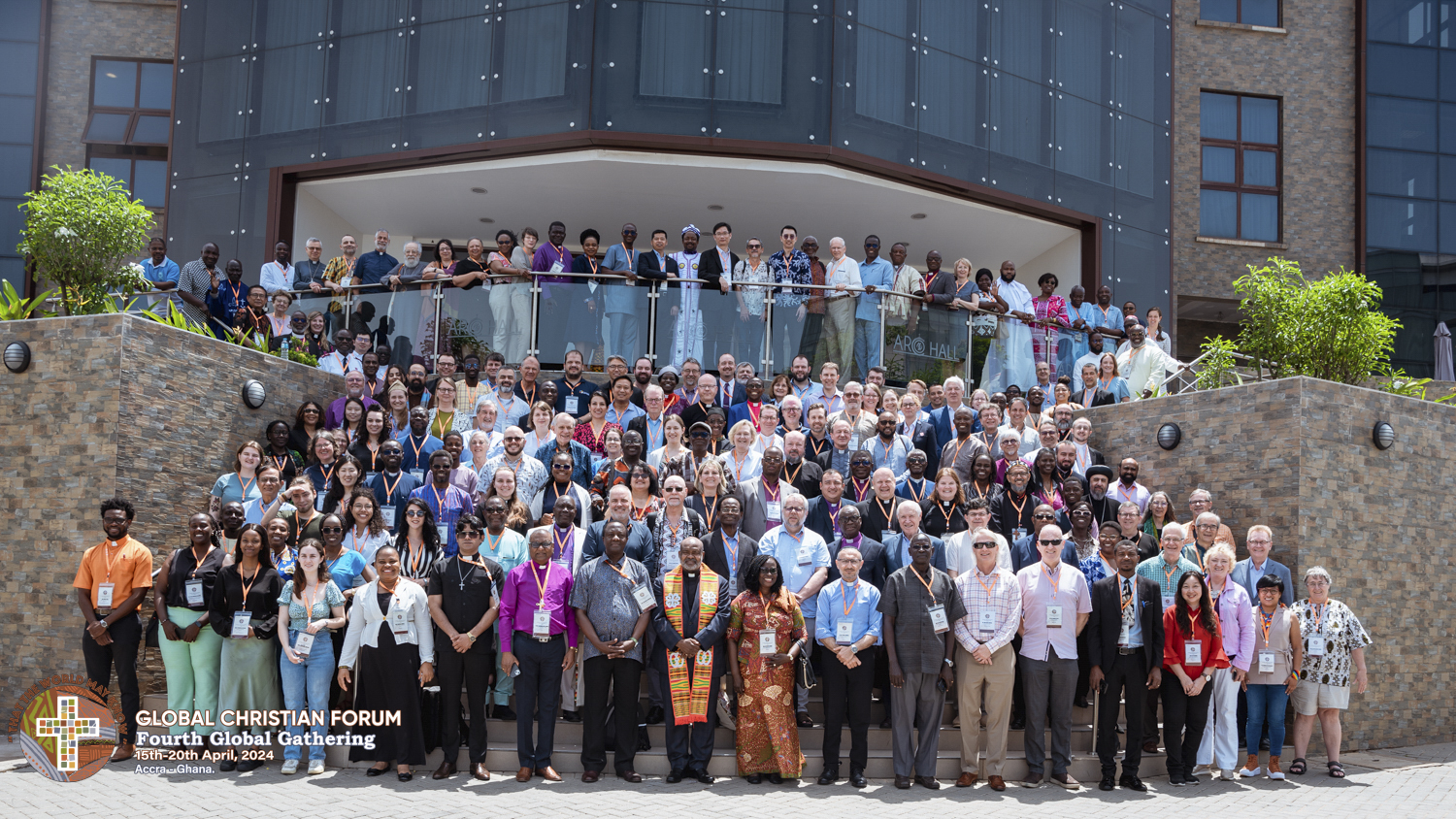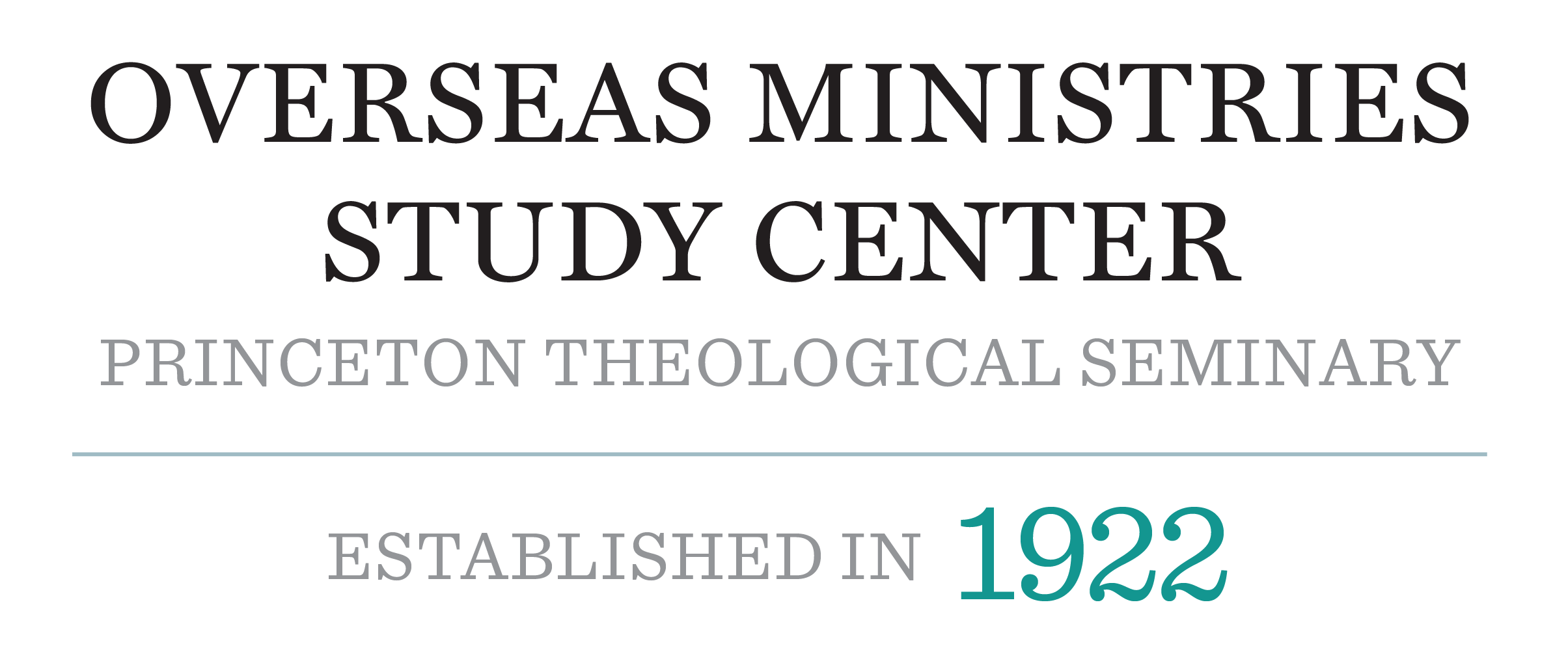by Gina Zurlo, Ph.D. – Co-Director – Center for the Study of Global Christianity and Yang Visiting Scholar of World Christianity, Harvard Divinity School
This post is part of The Occasional’s “Numbers and Trends” series, dedicated to sharing work, analysis, and perspectives from our friends and partners at the Center for the Study of Global Christianity based at Gordon-Conwell Theological Seminary.
I recently attended the Fourth Global Gathering of the Global Christian Forum (GCF), hosted in Accra, Ghana from April 15–19 with the theme, “That the World May Know.” Under the direction of General Secretary Casely Essamuah, the GCF is a unique ecumenical project less about lectures, position papers, and formal statements and more about crossing theological and ecclesial divides on a personal level. The GCF is centered around a particular method of ecumenical dialogue that helps foster new relationships among Christians by creating space to “meet on an equal basis, to foster mutual respect, and to explore and address together common concerns” (GCF website). Core to its method is sharing faith stories, where participants explore together how God is at work in the world and discuss the local and global challenges and opportunities facing their churches. In doing so, participants typically find they have more in common than expected and develop a deeper commitment to God’s mission in the world and the unity of the church.
The current GCF Committee consists of representatives from 25 different global Christian bodies, including the World Council of Churches, World Evangelical Alliance, World Pentecostal Fellowship, Syrian Orthodox Patriarchate of Antioch, the Organization of African Instituted Churches, and the Catholic Church’s Dicastery for Promoting Christian Unity. In its invitation-only global meetings, the GCF commits to a 50/50 split between “older” (Catholic, Orthodox, Protestant, Anglican) and “younger” (Evangelical, Pentecostal, Independent) churches. From this perspective, the GCF is by far the most ecclesiastically diverse and representative global Christian body, which is important in light of the continuing shift of Christianity to the global South. The message from the gathering in Accra can be found here, which emphasizes a shared commitment to recognize humanity’s brokenness, healing through Christ, and empowerment by the Spirit to go throughout the world with the gospel.
The Fourth Global Gathering was marked by emotional lows and highs that demonstrated the trials and joys Christians face in the 21st century. The excursion to the Cape Coast slave castle and service of lamentation and reconciliation at Cape Coast Cathedral was especially stirring as participants reflected on Christianity’s role in the dehumanization of others. Yet, under the banner of healing through Christ, the gathering held a special evening at Action Chapel International with Archbishop Nicholas Duncan-Williams, credited with establishing Charismatic Christianity in Ghana. Together, the GCF celebrated its 25th anniversary with singing, dancing, food, and fellowship.

In 2018, the GCF held its Third Global Gathering in Bogotá, Colombia. I attended this meeting of 250+ global Christian leaders and was inspired by the diversity of participants from all over the world. Yet, I was less inspired – discouraged, in fact – by the lack of youth delegates and participation from women. This is a common problem for large international meetings, which typically target leaders of churches and denominations, which tend to be older men. However, the difference between 2018 and 2024 could not have been starker in this regard. First, the GCF held its first-ever pre-conference Youth Gathering, which emphasized the importance of younger leaders and provided them opportunities to build global networks across ecclesial traditions. These younger leaders participated fully in the Global Gathering, reminding everybody that the youth are the future. Second, GCF leadership was incredibly intentional to increase the number of women attendees and speakers. The event opened with a powerful sermon from Rt. Rev. Lydia Neshangwe, Chairwoman of the Uniting Presbyterian Church in Southern Africa and President of the All-Africa Council of Churches. Rev. Stacey Duensing Pearce (Reformed Church in America) was a masterful moderator from the mainstage throughout the gathering. Rev. Esmé Bowers brought greetings from the World Evangelical Alliance, as did Commissioner Jane Paone from the Salvation Army. Women were present at every table and participated in every discussion. As a forum, the GCF is small and nimble, able to pivot when necessary and respond quickly to the changing shape of World Christianity. They heard the call from 2018 and they responded, which is to be commended and bodes well for their future impact in the decades to come.
For more information on the Fourth Global Gathering, check out these news articles from around the world:
- Episcopal Church
- Roman Catholic Church’s Dicastery for Promoting Christian Unity
- Lutheran World Federation
- World Council of Churches
- Methodist Ecumenical Office
- Church of England
- China Christian Daily
- Christian Daily International




